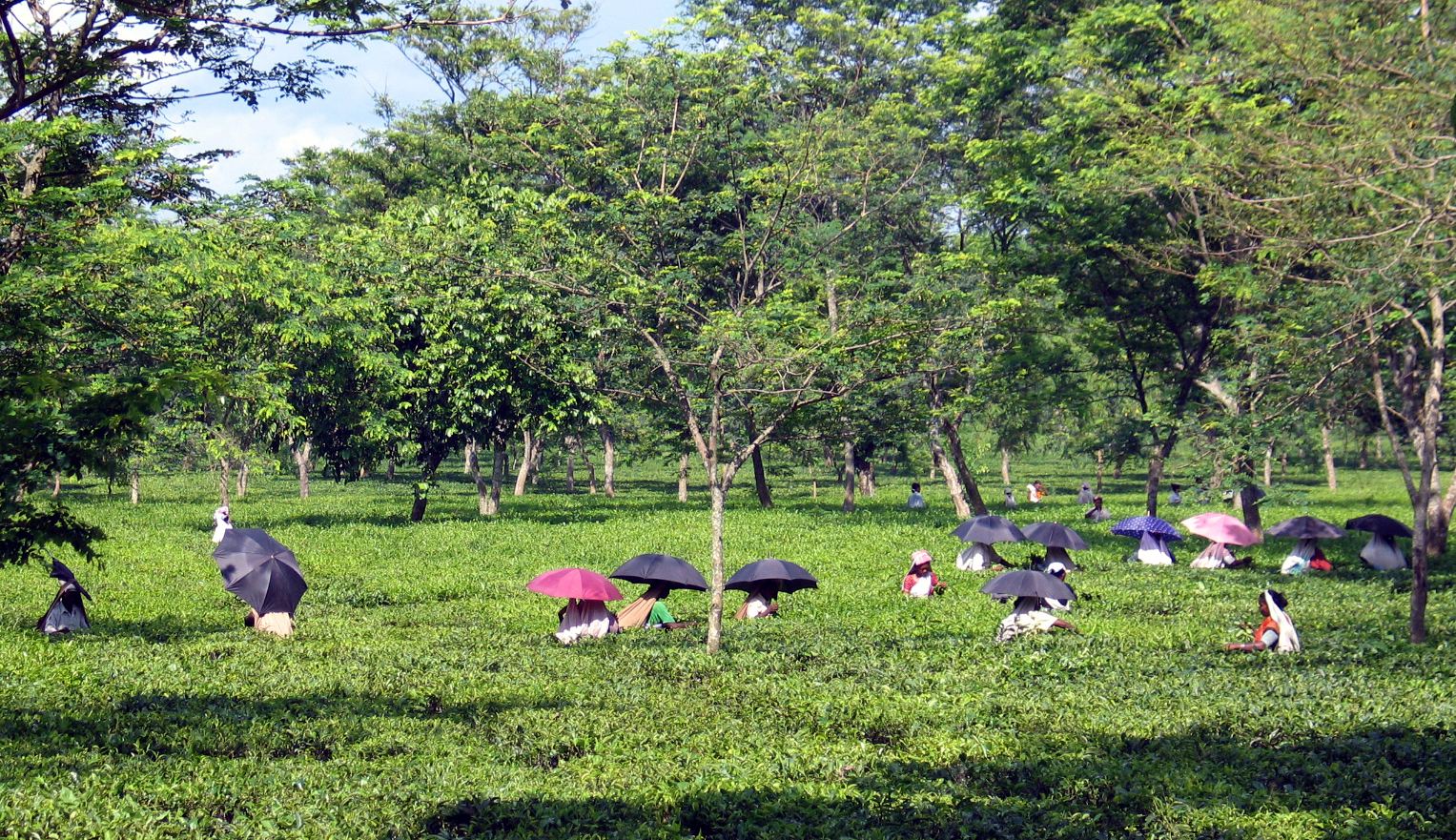Workers in tea plantations in North Bengal and Assam have been demanding the implementation of a minimum wage act. Their wages are substantially lower than those of their southern counterparts. Low wage of the workers might be one of the causes of such problems as starvation, malnourishment and the trafficking in women and children.
While dealing with such malaises in tea gardens, we tend to divide the latter into healthy and sick gardens. Sick gardens garner attention because of their condition, and policies are framed to turn them ‘healthy’. But a visit to a garden, be it sick or healthy, would reveal that workers’ plight remains the same. McLeod Russel India Limited, one of the greatest tea producers in the world, sold its garden in Bhatpara (Dooars). An RTI report says that the company evaded Rs 55,03,425 as land tax and left the garden. Another RTI report shows that Goodricke’s land lease in Sankosh and Kumargram tea estates in Dooars had expired in 2006 and 2000, respectively. The government did not take steps to resolve the issue.
The problem is compounded because the government is keen on opening closed tea gardens by any means, but is slow in solving their problems. The Ramjhora tea estate is a case in point. Here, it was agreed that the garden would open under the condition that the workers would receive only half of the increased arrears for the years, 2016 to 2019. That means they were to receive Rs 141 instead of Rs 150 per day. In reality, workers in Ramjhora have been receiving Rs 132.50 excluding their provident fund since 2014.
Owners used to provide rations for workers till the National Food Security Act came into force in West Bengal. In Assam, tea garden workers get rations from both sources. But the story is different in Bengal. In the past, owners used to buy food from the Food Corporation of India and rationed it for 40 paisa per kilogramme of grain to each worker. The management should have paid Rs 660 per family for 26 days which comes to Rs 25 per day per worker’s family. After the NFSA’s implementation, the state government started giving ration at the rate of Rs 1.25 per kg of grain to the dealers where the norm was set to sell food grain at Rs 2 per kg. The management declared that it would be selling rations at the earlier rate. In the gardens in which the dealership was given to the management, workers continue to receive 20 kgs of rice and 15 kgs of atta at 40 paisa per kg (46 paisa in the Darjeeling hills). Thus, the management is effectively paying Rs 29 per worker’s family per month instead of the Rs 660 it paid to the food department. The rationing at the rate of 40 paisa continued till April 2018. Bengal’s labour minister declared that the ration would be included as cash component upon which Rs 9 was added. However, the amount to be converted into cash component was Rs 25 instead of Rs 9. No one knows why the system of cash component was started from May 2018. It was supposed to be in place by February 2016.
Many a time, we witness tea fetching low prices in auctions. It is preached that the tea industry is in crisis. But it is not clear as to how much tea is being sold in the direct market; the amount which is sold is greater than the one sold at auctions. However, the norm mandates the owners to submit the accounts of price and amount of the tea sold to auction centres only. Neither the Tea Board nor the state government is willing to stop this. Significantly, the Board for Industrial and Financial Reconstruction has made it clear that the crisis in Duncans that led to several hunger deaths and labour problems was not related to tea production but was linked to recurring loss in non-tea businesses. In order to solve the crisis in the non-tea segment, the company had allegedly shifted tea capital to the non-tea industry.
A tea plantation has to go through gradual and diligent processes like re-plantation every 60-80 years and the bushes have to be maintained for four months during the lean period. Only then can planters think of making profit. But the modern owner lacks vision. Instead of reinvesting in their gardens, owners seem to be more interested in availing bank loans against such ‘property’ as tea gardens.
Workers’ politics is in the hands of those who are far removed from issues relevant to gardens. An industry with women leaders is dominated by powerful men. The Bharatiya Janata Party, a late entrant in labour politics, has demanded minimum wages in Bengal but has been mum on the same issue in Assam where it is in power. The Tea Board is acting like a toothless agency. At a time when owners are unwilling to fulfil their responsibilities towards workers and the State remains indifferent, only workers can save the tea gardens. In Tripura, workers have been successfully running a tea cooperative in Durgabari. In West Bengal, workers of the Sonali tea estate in Jalpaiguri had formed a cooperative in 1974. Ironically, the party that had made the tea cooperative successful in Tripura did its bit to destroy the Sonali cooperative in Bengal.











